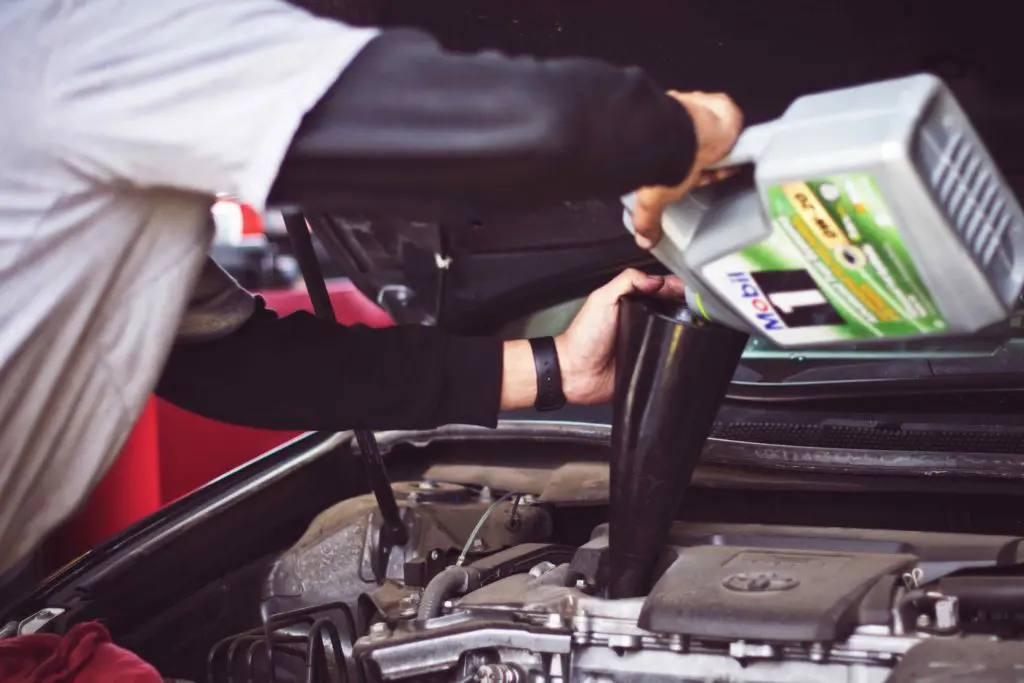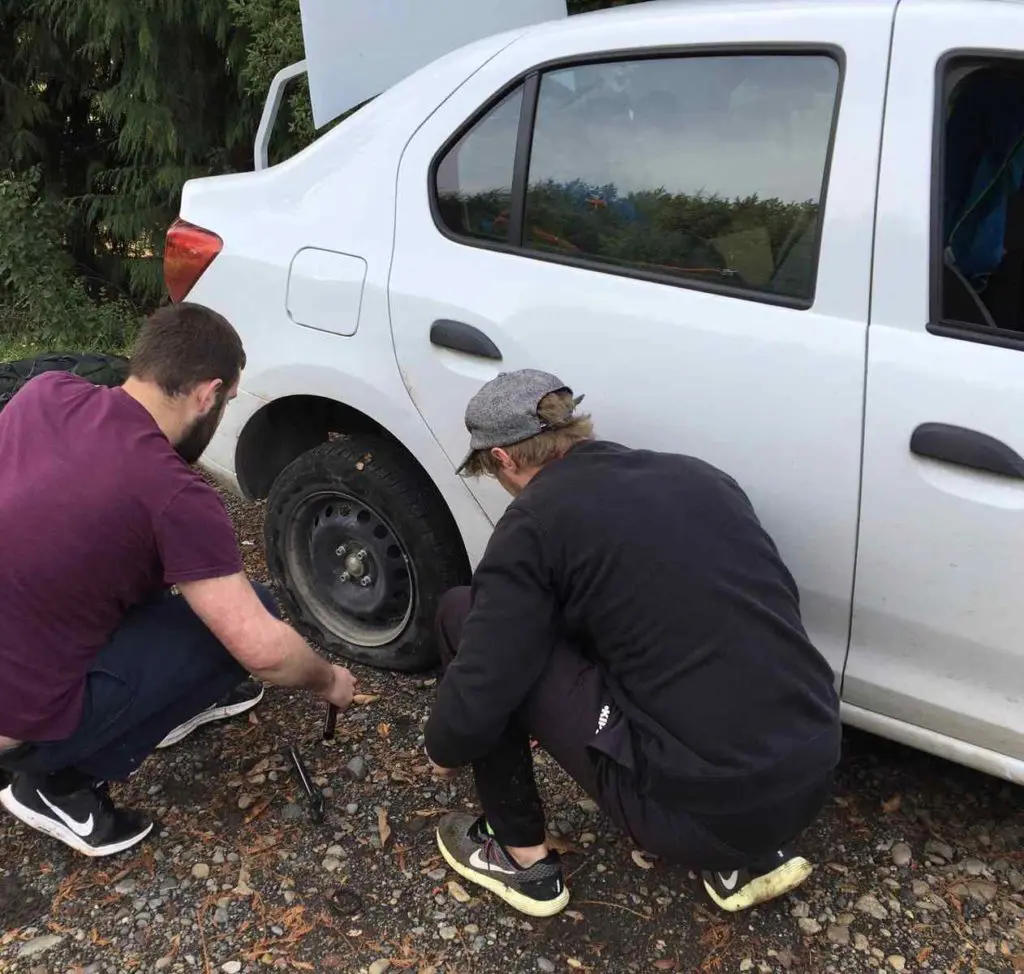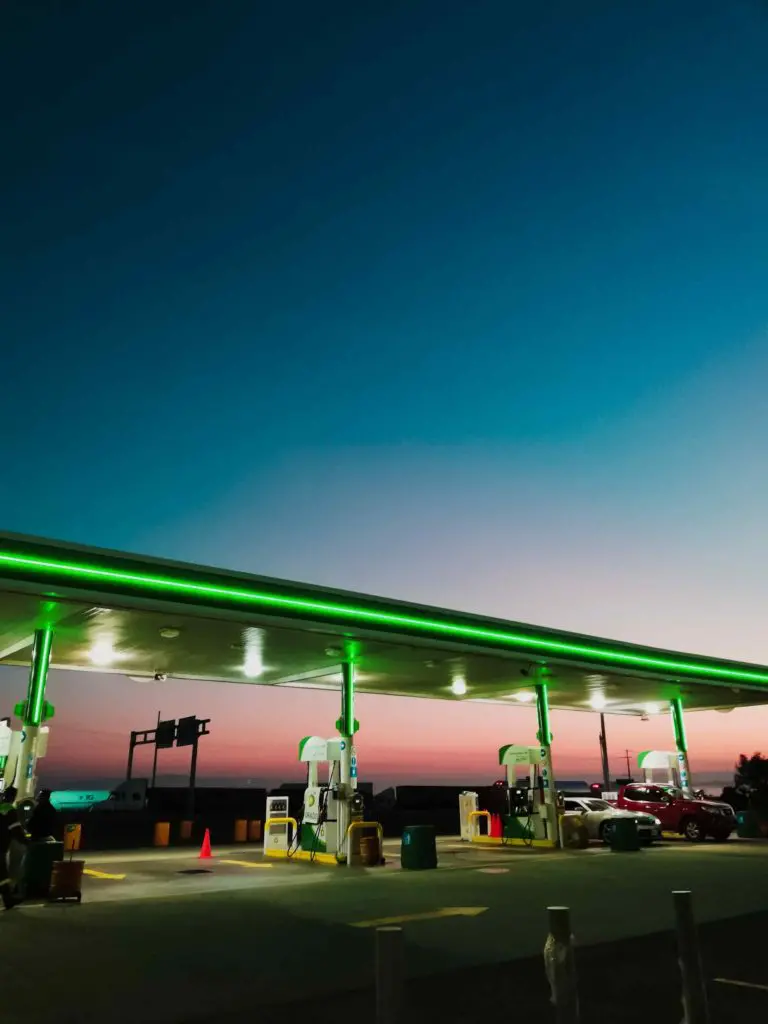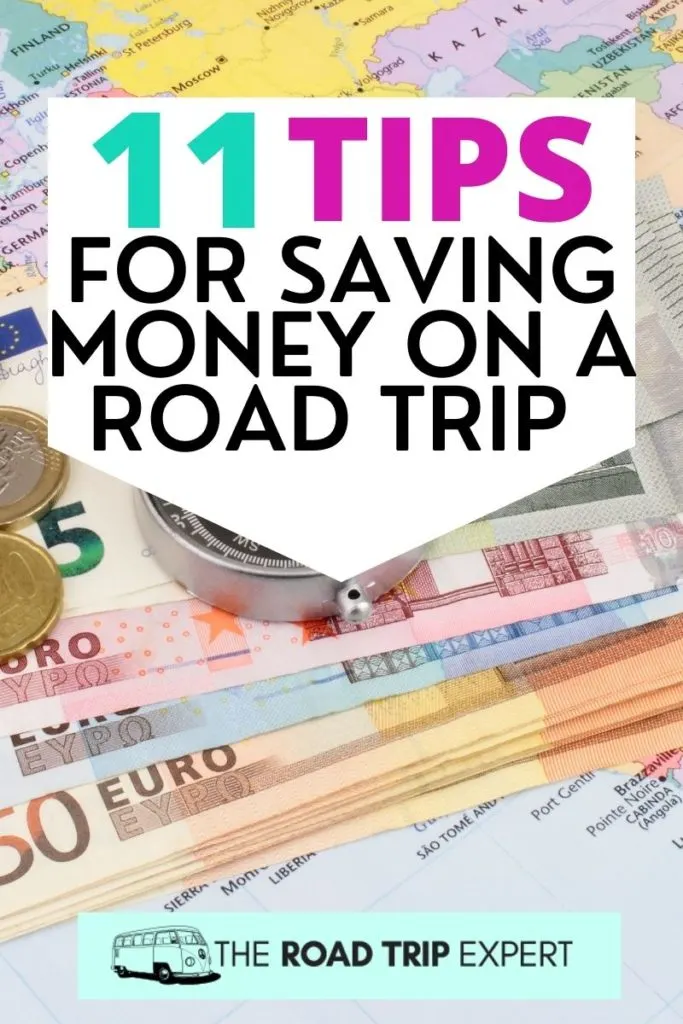I’m sure you’ll agree with me when I say, vacations are expensive. Even when taking your own car, the costs can really add up! In this article, I explain how to save money on a road trip
Thankfully, there are some simple things you can do to save money. That way, you can focus on enjoying the sights and sounds of a cross-country adventure by car, instead of the damage to your bank balance.
In this post, I explain how to road trip cheaply and have an enjoyable journey. This simple, actionable advice will help you plan a road trip to remember!
I’ve compiled 11 tried and tested cheap road trip tips that helped me save money during my 6,000 km road trip through South America.
They’re super easy and might just be the key to the perfect inexpensive road trip.
Whether you’re embarking on an exciting journey filled with things to do on a road trip with friends or planning an intimate couples’ road trip, following these 11 simple tips will help you maintain your budget without compromising on the fun and adventure.
Affiliate Disclosure: Thank you for supporting The Road Trip Expert. When you purchase through links on this site, we may earn an affiliate commission. Please see our advertising disclosure for more details.

1. Carpooling To Share Costs
The easiest way to save money on a road trip is to convince your friends, family, or loved ones to join you and split the costs! If you’re planning an epic adventure, why not invite others along for the ride? My huge road trip around Europe was much cheaper due to being joined by two friends.
2. Follow Our Road Trip Planning Guide and Create A Budget
Strategizing your road trip route in advance saves you from unnecessary detours and costly backtracking. This means you should establish your travel miles, pit stops, and duration early on. An organized approach not only simplifies budgeting but also provides a clear estimate of your trip’s cost. Our road trip planning guide is an excellent place to start.
Various resources can assist you in this process. Our best road trip planner apps article highlights numerous apps that aid in crafting your journey and we also offer an accurate fuel cost estimator to help you.
Remember, your budget should have room for spontaneous fun. Allocate extra funds for unforeseen attractions – you never know what recommendations fellow road trippers might offer. Google Maps can help you discover these spontaneous stops and we also have a guide on finding tourist attractions along a route. For your essential breaks, iExit locates ideal stopovers based on your highway location.
Remember, locals know best! Consider asking around for local insights and try to limit souvenir purchases (these can add up quickly).
Also, consider possible delays or expenses such as roadworks or toll roads in your budget planning. Google Maps offers an option to evade tolls, allowing you to assess the time difference and make an informed choice. This proactive approach to creating a road trip budget ensures you can fully embrace spontaneous detours without breaking the bank.
3. Find The Best Value Rental Car
It’s important to research all of the things to consider when renting a car for a road trip. One of my favorite things to do is fly into a new country, rent a car, and take an awesome road trip. I’ve added all of my tips and advice to my article on finding the cheapest rental car.
4. Find The Best Value Accommodation

Finding cheap accommodation is one of the best ways to save money on a road trip.
Early hotel reservations can save a considerable amount of money, as rooms often come cheaper when booked in advance. If your route is pre-planned, this step should be straightforward. It helps secure a room at the best price while giving you peace of mind. But remember, don’t hastily book the first option you come across.
Hotels are often listed at varying rates on different platforms. Take advantage of comparison sites such as Booking.com if you want to find cheap accommodation on a road trip. Don’t overlook the hotel’s own website either; they often offer unique discounts. If a hotel lacks a website, a quick email or phone call can give you a cost estimate.
Even if your plan isn’t concrete, you can roughly estimate where you might stop for the night and explore accommodation options in that area. By researching the standard rates, you reduce the risk of overpaying. And remember, parking can sometimes add to the cost.
If you’re eager to slash costs further or desire a unique experience, consider alternative accommodation. Staying in someone’s home, like those listed on Airbnb, can be cheaper and more immersive than traditional hotels. From beachfront bungalows to luxury city penthouses, you might stumble upon some incredible places at great value!
Free options exist too. Couchsurfing, a platform based on the principle of reciprocal hospitality, can be a viable and sociable alternative. Check our road trip resources page for more information about these and other accommodation platforms.
Off-peak travel can also help you snag hotel deals. Similarly, consider the loyalty programs of your frequently used hotel chains.
5. Consider Camping for Cost-Cutting

Swapping hotel rooms for campsites is an effective cost-cutting strategy on road trips. You’ll find plentiful free or low-cost sites that offer more than just a place to sleep; some even include utilities. For those seeking a dash of comfort, paid campsites, despite being more affordable than hotels, usually offer amenities like hot showers, clean toilets, and cooking areas.
Platforms like iOverlander can help you locate budget-friendly campsites along your route, detailing costs and available facilities—a fantastic resource for a budget-conscious road trip.
Camping isn’t just about savings, though. It’s a chance to embrace the outdoors and appreciate Nature’s offerings. Sure, you might miss some conveniences, but the essence of road trips lies in such novel experiences. Refer to our camping road trip essentials for a packing checklist, and our comprehensive car camping guide for more tips on a successful camping experience.
These guys also have some sweet tips for saving money on your road trip!
6. Find The Best Value Parking
Parking costs can add up quickly, so be wise about where you leave your car. Hotels might be the most convenient, but they aren’t always the cheapest option. Before arriving, contact your hotel to inquire about their parking fees and any cheaper nearby alternatives. Better yet, look for accommodations advertising free parking to save further.
Consider parking outside city centers and taking public transport to your accommodation. City Mapper is a useful tool for urban transport planning. You might even choose to park at your main attraction for the day and stay in outlying areas, where free parking is more likely.
Several resources can help you find affordable parking, including Parkopedia and Park Me Parking. Both provide accurate pricing based on your stay’s duration and allow for in-app space booking. Price comparisons like these can significantly cut costs during long trips. For more tips, check out our guide on how to find cheap parking on a road trip.

7. Bring Food From Home To Avoid Overpriced Food

This is how to save money on food on a road trip.
Food is a significant expense on road trips, but you can curb costs by bringing meals and snacks from home. This approach not only saves money but also keeps you from resorting to overpriced, subpar gas station grub.
Here are some tips for road trip nutrition:
- Pack a cooler: Fill a cooler with fresh foods like sandwiches, fruits, and veggies. Check out our road trip sandwiches for inspiration.
- Prepare Snacks: Single-serving snacks like nuts, chips, and granola bars are perfect for on-the-go munching. Our road trip snacks article and road trip snack box recipe provide plenty of creative options.
- Hydrate: Bring water in reusable containers to cut back on waste and costs. Refill them whenever possible.
- Pack Essentials: Don’t forget non-food items like cutlery and plates. Choose reusable items to help the environment and save money in the long run.
For a more extensive list of suitable foods for road trips, consult our road trip food ideas guide. Having your food prepped and ready can turn a roadside picnic into a budget-friendly, delicious meal with a view. It’s also worth noting that this is a great way to engage in more sustainable travel. We talk more about this in our article on eco-friendly travel.
8. Pack Smart For A Stress-Free Adventure
An advantage of a road trip over a flight is the freedom to bring almost anything you want. However, it’s crucial to pack wisely to avoid forgetting essentials or overpacking.
Use our comprehensive road trip packing list to help ensure you don’t overlook items like toiletries, sunscreen, phone chargers, and underwear (yes, even those can be forgotten!). Buying such necessities on the go can cost you more, which is unnecessary given they’re likely lying around at home.
While it’s tempting to pack your car to the brim, remember that excess weight burns more fuel, meaning more money spent. Plus, overpacking can clutter your vehicle, making it difficult to locate items quickly and reducing overall comfort during your trip.
So, keep it simple, stick to the essentials, and aim for a well-organized packing strategy to make your road trip more comfortable and cost-effective. Remember, it’s not about packing more; it’s about packing smart.
9. Drive Economically To Save On Gas

Road trips are fun, but they can often be long and tiresome. During those lengthy drives, resist the urge to speed up. Not only is it unsafe, but it also leads to decreased fuel efficiency. So, to save money on fuel, it’s important to adopt smart driving habits. Here are some tips to help you drive economically:
- Maintain a Steady Speed: Maintaining a steady speed maximizes fuel efficiency by allowing the engine to operate in its most efficient range without unnecessary acceleration or deceleration.
- Avoid Rapid Acceleration and Braking: These actions tend to consume more gas. Try to anticipate traffic conditions and adjust your speed smoothly.
- Time Your Trips Wisely: Avoid peak traffic times when you’ll likely have to stop and start frequently. This can save you both fuel and frustration. Research the best time to leave to avoid traffic on a road trip.
- Turn Off the Air-Conditioning: Although comfortable, air conditioning can be a significant gas-drainer. If the weather permits, opt for opening a window or using the fan instead. If you don’t have air-con you need other options. Check out our guide on cooling down a car without AC.
To help plan your journey and keep track of fuel costs, use a car fuel cost calculator. This can give you a better idea of the actual costs associated with your road trip. For more extensive tips, check out our guide on how to save gas on a road trip. And remember, driving smarter not only saves you money but contributes to a safer and more enjoyable road trip experience.
As an extra tip, if your car insurance is nearing renewal, consider researching to find the best deals available. Check out our guide on finding affordable car insurance.
10. Check Your Car (Or Get It Checked) To Avoid Costly Repairs On The Road

Just imagine: You’ve started your road trip and you’re brimming with excitement. Everything’s going great until… CLUNK! Your vehicle breaks down. To avoid this scenario and save on potential repair costs during your journey, it’s essential to get your car checked or do it yourself before you hit the road.
Whether it’s a small tune-up or a significant repair, getting your car serviced before departure can save you from an unexpected setback. If you’re not comfortable doing this yourself, seek the assistance of a reliable mechanic. Here’s a quick checklist of some crucial elements to verify:
- Fluid Levels: Ensure your oil, brake fluid, power steering fluid, coolant, and windshield washer fluid are all topped up.
- Tire Health: Check the tire tread and ensure the pressure is optimal. Underinflated tires could decrease gas mileage and potentially lead to more severe issues.
- Lights: Make sure all lights, including headlights, brake lights, and turn signals, are functioning properly.
- Wiper Blades: Ensure your wiper blades are in good condition, especially if you’re expecting rainy weather.
- Battery: Check your car battery for signs of corrosion and ensure it’s fully charged. Most car batteries last between 3-5 years. If yours is around this age, consider getting it tested or replaced.
- Belts and Hoses: Look for signs of wear and tear on the belts and hoses, such as cracks, fraying, or leaks. If they appear worn, it’s best to get them replaced before a long journey.
- Brake System: Check the brake pads for wear and ensure the brake system is functioning correctly. If your car pulls to one side while braking or if you hear a squealing noise, it might be time for a brake service.
- Spare Tire: Always make sure you have a spare tire that is in good condition and fully inflated, along with the necessary tools to change a tire.
- Emergency Kit: It’s always a good idea to have a car emergency kit (from Amazon) in your car that includes a first aid kit, flashlight, jumper cables, a multitool, water, and non-perishable food items.
- Air Filters: Clean or replace your air filters if needed. A clogged air filter can reduce your fuel efficiency.
By conducting these simple checks, you can prevent breakdowns that might involve costly repairs or towing charges. Plus, you avoid the risk of getting fined for non-compliant vehicle conditions.
To dive deeper into this topic, take a look at our comprehensive guide on how to prepare your car for a road trip. If you’re driving an older vehicle, check our advice for driving an old car long distance. Lastly, don’t forget to go through our road trip safety tips to ensure a safe and enjoyable journey.

11. Plan For The Worst To Avoid Unforeseen Costs

Smart planning includes preparing for unforeseen circumstances that might crop up on your journey. Even the best-laid plans can be disrupted by sudden car troubles. Here are a few strategies to mitigate these disruptions and avoid unexpected costs.
Roadside Assistance: For as little as $5 a month, you can secure a roadside assistance plan, a safeguard that could save you a significant sum should you encounter a flat tire, dead battery, or more severe vehicle issues. A nominal monthly fee could prevent an expensive emergency callout or towing fee. AAA offers reliable coverage in the United States, while those in the UK might consider options like Money Supermarket.
Car Emergency Kit: Equipping your vehicle with an emergency kit empowers you to handle minor issues independently. Such a kit should include:
- Spare tire and corresponding equipment
- Jerry can
- Jumper cables for a dead battery
- Flashlight (consider that issues are more common at night)
- Safety triangle or other visibility aids for stopped vehicles
- Warm clothing
- Water and non-perishable food items
- Quality Materials: Our Car Emergency Kit is packed…
- 90-Piece Premium Roadside Assistance Set: Our kit…
- Additional Kit: We’ve included only the best tools…
This preparedness mindset may seem pessimistic, but it’s a pragmatic approach that could save you money and stress on your road trip. Remember, hope for the best but plan for the worst.
12. Don’t Fill Up On The Highway To Avoid Overpaying

Highway gas stations often inflate their prices, so it’s advisable to avoid filling up your tank at these locations. But how do you find the best fuel prices, especially when gas stations may be tucked away from view? Here are a few strategies:
Use Gas Buddy: This website and app help you discover the cheapest gas prices near your location. With just a few clicks, you can find affordable stations and significantly cut down your fuel expenses. Gas Buddy also offers a rewarding loyalty system and an in-app payment feature, adding even more opportunities for savings.
Fill Up at Lower-Priced Stations: When you encounter a station with good fuel prices, seize the opportunity to fill up your tank. This strategy is particularly useful if you’re undertaking a cross-border journey, such as a European road trip, where fuel prices can fluctuate significantly between countries.
If you’re planning a road trip beyond U.S. borders, consider using Waze, a navigation app that also offers a gas price-checking feature. For more tips on how to save on gas during your road trip, check out our guide on how to save money on gas on a road trip.
13. Use A Gas Rewards Card

Opting for a gas reward card can help you accrue points for every gallon you pump, leading to significant savings over the course of your journey. These cards are usually free and available at most gas stations. After accumulating enough points from repeated refueling, you can redeem them for discounted or even free gas, putting more money back into your pocket.
Now that we’ve shared our top strategies for budget-friendly road trips, we’re eager to hear from you. Which of these tips will you try first on your next journey? Or perhaps you have additional money-saving road trip advice to share? We’d love to hear your thoughts, so please leave a comment below.
For more tools and deals to make your road trip more enjoyable and economical, check out our road trip resources page. This includes a curated list of our favorite travel companies and deals that can aid you in planning and executing an unforgettable and budget-friendly road trip.
Disclosure: Some or all of the links in this article may be affiliate links. This means I earn a commission if you make a qualifying purchase, but this is at no additional cost to you. Thank you for supporting The Road Trip Expert.


